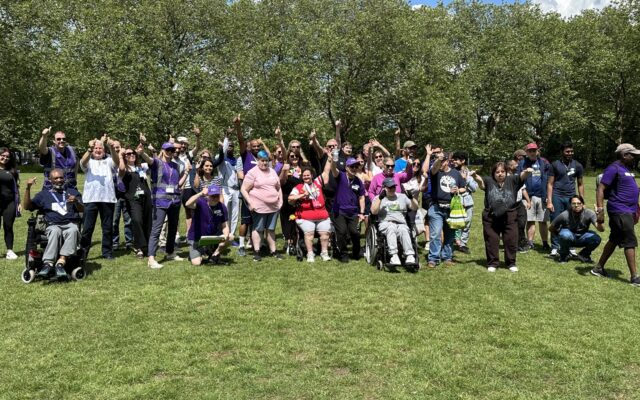Research has highlighted the need for a national advocacy strategy for those with learning disabilities and autistic people who are inpatients in mental health settings.
The study, A Review of Advocacy for People with a Learning Disability and Autistic People in Mental Health Settings, was produced by social change body the National Development Team for Inclusion (NDTi).
Independent advocacy supports people to get the life they want, be heard and have their rights upheld. This is critical when people are placed in restrictive environments. Approximately 2,030 individuals with learning disabilities and autism are in mental health settings.
NHS England commissioned NDTi with partner organisations to discover the barriers to effective, timely independent advocacy and identify factors enabling good advocacy. Our partners were Bringing us Together, the Challenging Behaviour Foundation, Speakup Self Advocacy and People First Independent Advocacy.
The review shows provision does not always meet needs; it is also often disjointed and led by processes rather than the requirements of people drawing on advocacy support.
It also calls for people to have consistent access to independent advocacy – high-quality, person-led, robust independent support, delivered through trusted relationships with advocates. Advocates also need time to really listen to people and understand to ensure their voices are heard and are central to decisions and that rights are upheld.
The findings reflect the views of more than 500 individuals and groups, including people with learning disabilities, autistic people, advocates, family members and self-advocacy organisations.
One advocate who participated anonymously said they had supported people in mental health settings who were in seclusion: “Getting down to the seclusion unit and trying to forge an advocacy relationship in such circumstances is very difficult.”
Getting down to the seclusion unit and trying to forge an advocacy relationship in such circumstances is very difficult
A family carer said: “Really good support can only be offered by well-informed, qualified individuals who are independent of the responsible agencies.”
An advocacy manager described what was needed: “Until the culture within hospitals moves towards open cultures and social models [of disability], the advocate will not be able to embed a culture of human rights.”
Next step
NDTi is calling for a national advocacy strategy and a multi-agency approach to achieve advocacy that meets needs. It is keen to work with people and families, the advocacy sector, government agencies and mental health services to collectively address the issues identified and create change.
It is essential that government, health and social care agencies – including providers of independent advocacy – continue to work proactively to address the issues identified in the review.
Gail Petty is advocacy programme lead at NDTi





